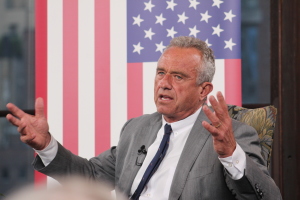Alabama's New Abortion Law Delayed Until 2014 as Judge Issues Temporary Restraining Order
A federal judge has issued a temporary restraining order against a new Alabama abortion law this week as a lawsuit filed by Planned Parenthood against the state's attorney general makes its way through court.
U.S. District Judge Myron H. Thompson ruled Tuesday to temporarily block the state's new abortion law which requires abortion clinic doctors to have admitting privileges at a nearby hospital.
Additionally, the law requires abortion clinics to have the same standards as ambulatory care centers.
Due to Tuesday's ruling, the law will now be delayed until March 2014, when it was initially supposed to go into effect on Aug. 15.
Those who filed the lawsuit, including Planned Parenthood Federation of America, Planned Parenthood Southeast, the American Civil Liberties Union, Reproductive Health Services, and a nurse, argued that the law was unnecessary in protecting a woman's health and could cause over half of the state's abortion clinics to close.
"In some cases, women will be unable to obtain abortions altogether because of the loss of abortion services," the lawsuit stated.
Those supporting the state's new abortion law argue that abortion clinics should focus on improving the quality of their facilities rather than filing lawsuits against the state.
Republican State Representative Mary Sue McClurkin told Reuters in a recent interview that the intent of the bill was not to shut down the state's abortion clinics, but rather to ensure they have high standards to protect the safety of women.
"I am surprised they are filing lawsuits instead of bringing the clinics up to code," McClurkin said when the suit was filed.
The law was signed by Republican Gov. Robert Bentley in April, who hailed the legislation as being "endorsed by pro-life groups across America."
"As a physician, and as a governor, I am proud to sign this legislation," Bentley said in a statement at the time.
"This bill provides appropriate standards of care," Bentley added.
Several other states are currently debating new abortion laws. Earlier this week, a federal judge granted a temporary injunction against North Dakota's planned fetal heartbeat law, which seeks to prohibit abortion after a fetal heartbeat is detected, which can happen as early as six weeks into pregnancy.
Additionally, in Wisconsin a federal judge recently issued a temporary restraining order against a law that prohibits doctors from performing abortions unless they are within 30 minutes of a hospital with admitting privileges.
Conversely, Texas' Gov. Rick Perry recently signed a law which restricts abortions after 20 weeks of pregnancy in the state.




























